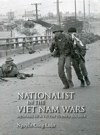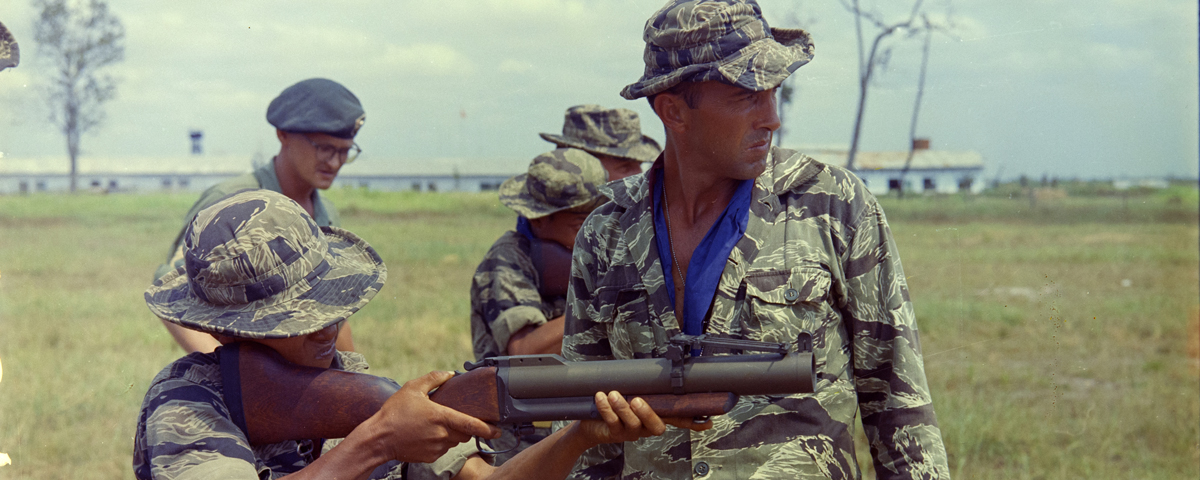 Nationalist in the Viet Nam Wars: Memoirs of a Victim Turned Soldier, by Nguyen Cong Luan, Indiana University Press, 2012
Nationalist in the Viet Nam Wars: Memoirs of a Victim Turned Soldier, by Nguyen Cong Luan, Indiana University Press, 2012
Make no mistake about it: This is a hard read. The author’s first language is not English; his syntax is at times strained, he often misuses words and makes grammatical mistakes. Yet this is a must read for anyone with the slightest interest in the Vietnam wars that began with the Viet Minh insurrection against the French and lasted until the collapse of the Republic of Vietnam under the ferocious assault of North Vietnam.
The study of the Vietnam wars is too often a cottage industry of Americans, many of whom seem to believe the war only began with increasing U.S. involvement in the early 1960s. Admittedly, interesting work from the North Vietnamese perspective, largely in literary form, has begun to emerge, but the perspective of those who fought for the Republic of Vietnam has largely gone unreported. That is why this is an important book.
Colonel Nguyen Cong Luan was born in 1937 in a town north of Hanoi. His family, strong nationalists but opposed to the Communists, were subject to the brutal French attempts to crush the Viet Minh and the ruthlessness of Ho Chi Minh’s guerrillas. Nguyen’s account of growing up in a remorseless civil war caught between these two fierce opponents is by itself worth reading. Nguyen notes: “Our submission to the French military authority did not protect us from being looted, raped, tortured, or killed by the French soldiers.” The Viet Minh terror was equally savage, especially against those who were anti-French but unwilling to join the Communists.
After Dien Bien Phu in 1954, Nguyen and most of his family fled south and Nguyen decided on a military career, even though his father’s death in a Viet Minh concentration camp exempted him from conscription. He joined the army as a cadet at the military academy in October 1955, and from then on Nguyen had a bird’s-eye view of the war.
Graduating from the academy in December 1956, Nguyen attended the officers’ basic infantry course at Fort Benning, Ga., and upon his return to Vietnam in 1959 he went to the 22nd Infantry Division in the Central Highlands. From then on, he was increasingly engaged at lower staff levels in fighting the Communists. In 1959 Ho Chi Minh resumed the guerrilla war to destabilize a Diem regime that seemed to be gaining control.
Cooperation with the Americans, writes Nguyen, was most successful between 1959 and 1964—a reflection of the quality of the officers sent to train and advise the Vietnamese. Matters degenerated, however, as the North Vietnamese increased their support to the VC. The American-engineered overthrow of Diem was a military and political disaster resulting in a slide toward defeat as the generals coming after Diem proved incompetent as well as corrupt.
Only massive U.S. intervention in 1965 prevented the North Vietnamese from finishing the job. Significantly, Nguyen focuses little on that aspect of the war. He does, however, suggest that the American effort of search and destroy represented a serious miscalculation because it took the focus away from the war in the countryside and delayed the buildup of South Vietnamese ground forces until late 1967. The result was that the South Vietnamese lost nearly three crucial years to get their military ready to stand on its own. Nevertheless, the Tet attacks of January 1968 proved that even with inadequate arms and training, the South Vietnamese were willing to fight and could do so with effectiveness.
After working in the General Political Warfare Department, largely focused on the propaganda war, in 1967 Nguyen took over the Reception Directorate of the Chieu Hoi Ministry, the program to undermine the Communists by entreating their soldiers to desert. There, he was in an ideal position to learn of the difficulties the enemy was having. Particularly impressive is Nguyen’s account of the willingness of those who changed sides to fight against their former comrades. The author’s discussion about them is perhaps the most interesting aspect of the book.
The book’s last two sections are the most depressing. They deal with the U.S. withdrawal and the eventual collapse of South Vietnam, and then the fates of those who had supported the republic. Nguyen himself was attending the advanced infantry officers’ course at Fort Benning in 1974 and returned home when the collapse began in January 1975. He would be repaid for his deep loyalty to the old regime by a lengthy stay in the new regime’s re-education camps.
In the wake of South Vietnam’s defeat, those who had been most idealistic in its defense faced the harshest consequences. Nationalist in the Viet Nam Wars is a dark and fascinating tale. But it is illuminated by Nguyen’s story of escape from Communist tyranny to the United States in 1990, and by his honesty and integrity, which shine through on every page.
—Reviewed by Williamson Murray





